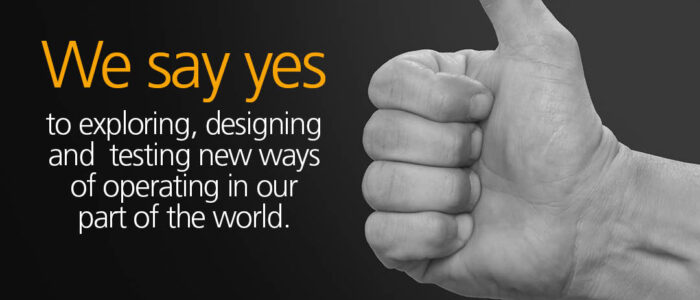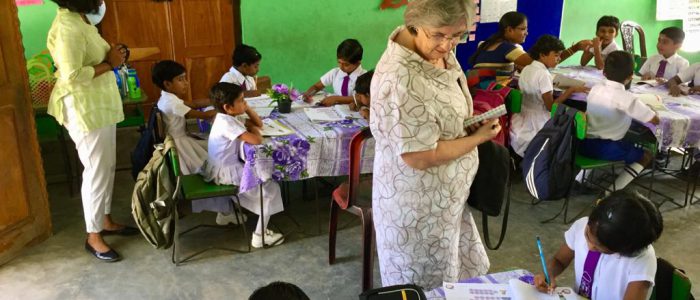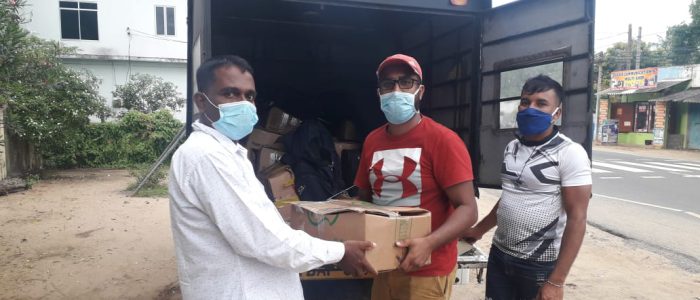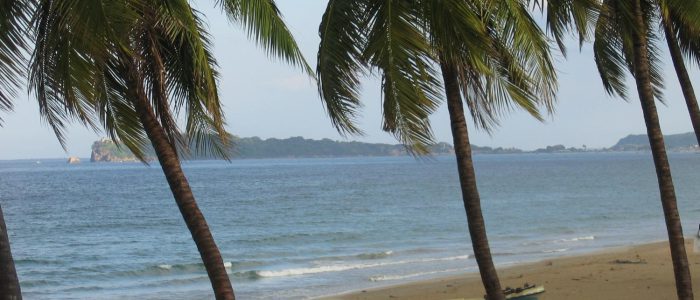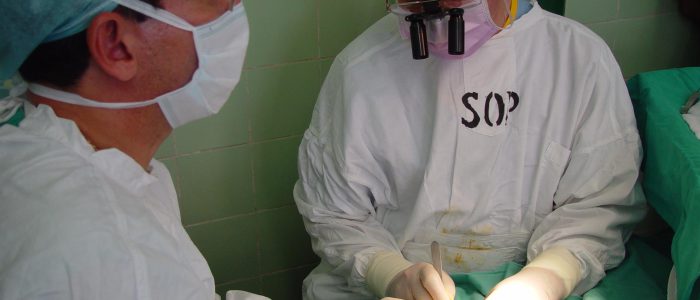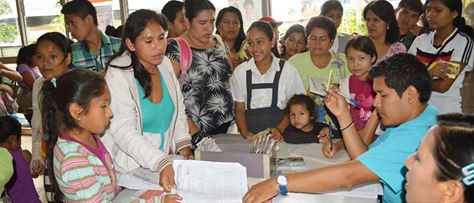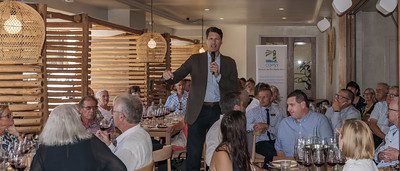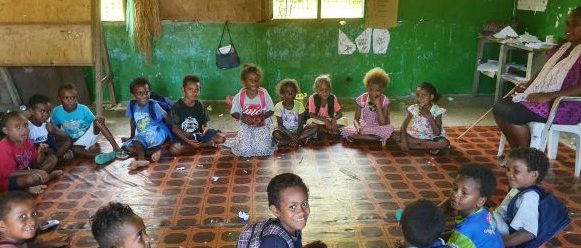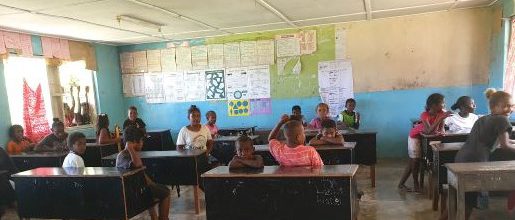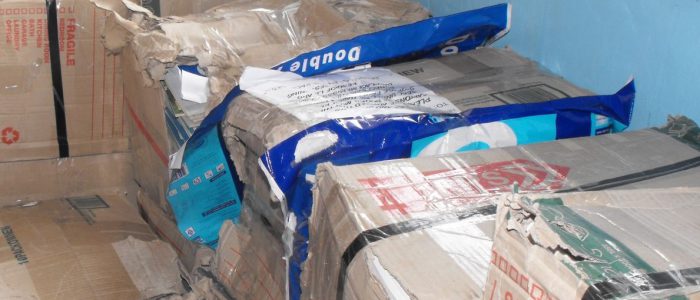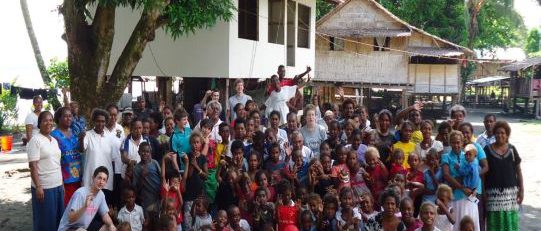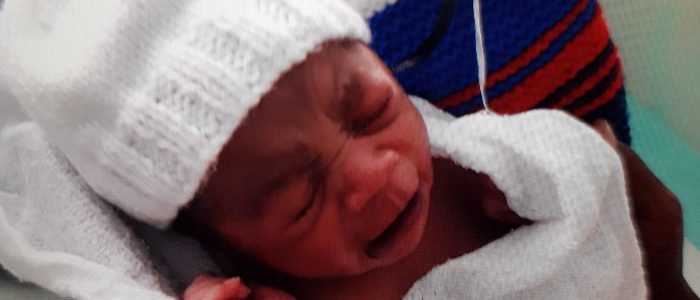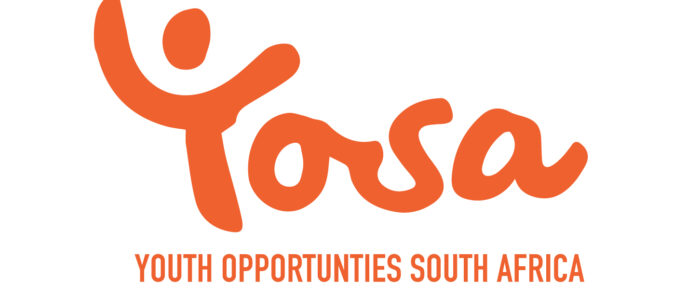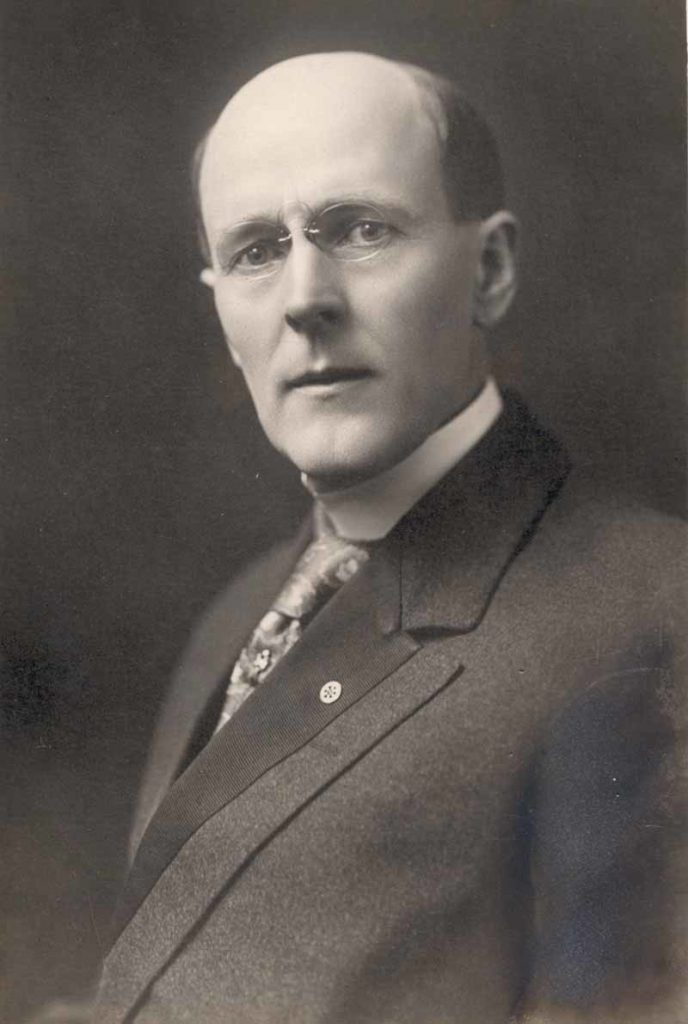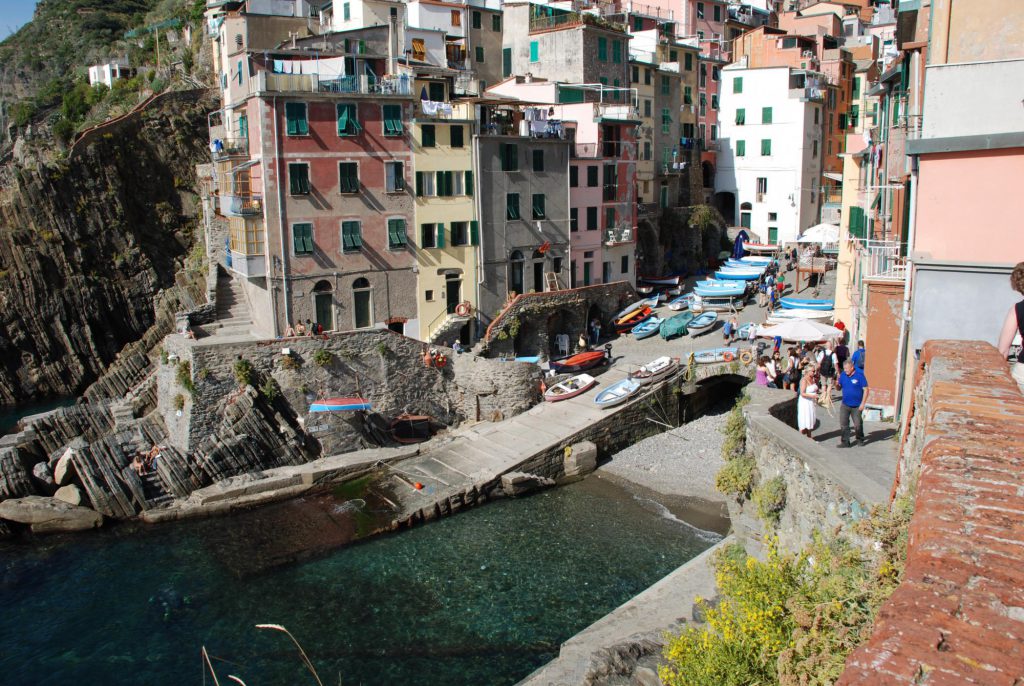
Above – Riomaggiore one of the 5 towns of the Cinque Terre. Fascinating communities.
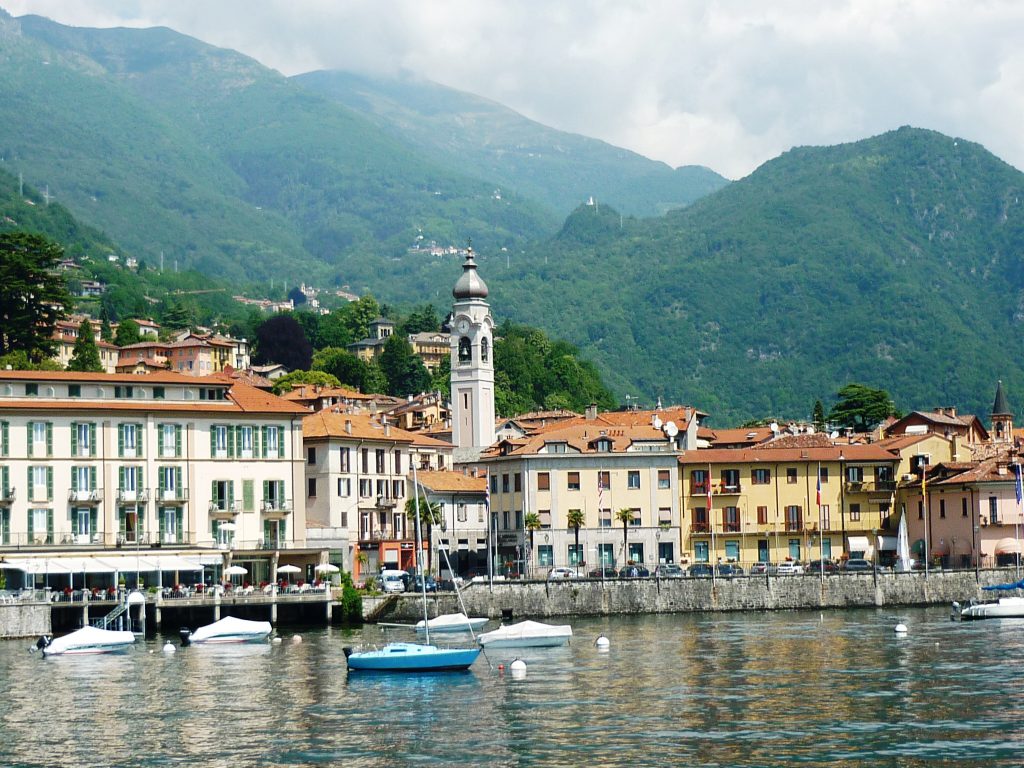
Above and below – Menaggio, Lake Como – view of town. Such a beautiful area.
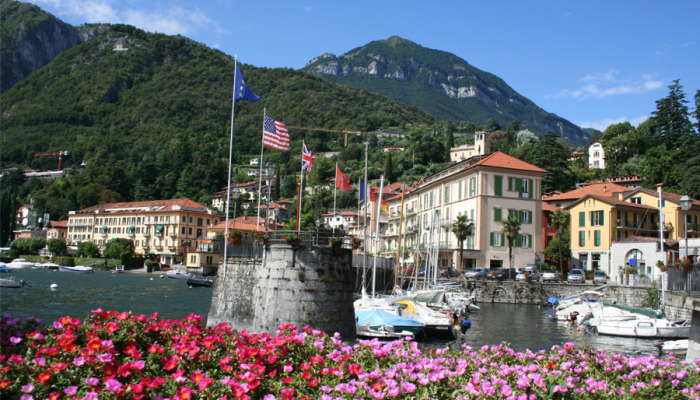
ROTARY CONVENTION 2018
I see where 9000 people have already booked for the Rotary Convention in Toronto 2018. Are you one of them?
Unveiling People of Action

By Rotary staff
We are excited to reveal a new public image campaign, People of Action, at this year’s Rotary International Convention in Atlanta, Georgia, USA. As Rotarians from all over the world came to Atlanta, they are experiencing and learning about this global campaign for the first time at the convention, held at Atlanta’s Georgia World Congress Center, 10-14 June 2017.
Convention attendees are greeted by new People of Action advertisements on billboards at the airport and around the city of Atlanta. At the venue, the ads are prominently displayed in the convention halls—on the windows and banners throughout the conference center.
There’s also a full agenda to help introduce and inform Rotarians about the new campaign. During the plenary session this morning, John Smarge, Chair of the Communications Committee, showed the campaign video and talked about this campaign as an important next step in promoting awareness and understanding of Rotary, as well as the impact Rotarians make around the world.
- Rotary’s social media team will publish the People of Action campaign on their Rotary channels in all Rotary languages.
- There will also be two breakout sessions that will include information about the campaign. A session will run on Wednesday afternoon in Rooms B304-305: Becoming an Effective Rotary Communicator and Promoting Rotary in Your community
Whether you are attending this year’s convention or staying home, it’s a good time to start planning for how your club will use the People of Action campaign ad to promote Rotary in your community.
Thanks to all the members who attended our social meeting last Wednesday. I will try and give you an update on our European trip each week in my post. You can leave a comment on each post if you wish.
Why the good you do will do good to you
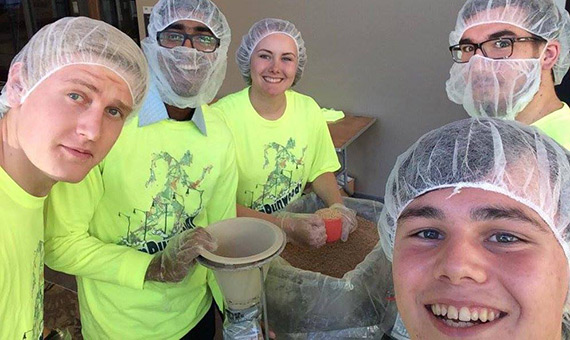
Ambanpola, second from left, packing 10,500 food packets for Haiti with members of Rotaract.
Editor’s note: This is part of a series of blog posts from Youth Leadership All-Stars, participants in Rotary’s programs for young leaders, in celebration of Youth Service Month.
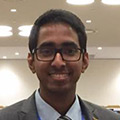 By Nipuna Ambanpola, a member of the Rotaract Club of Armstrong State University and former member of Interact
By Nipuna Ambanpola, a member of the Rotaract Club of Armstrong State University and former member of Interact
Volunteering has been a very satisfying component of my life. When I volunteer, it’s always about contributing my time and skills to enhance the quality of life of others in my community.
I joined the Interact Club of Royal College, the second oldest club and the oldest continuously functioning club in Sri Lanka in 2009. Since then I’ve been involved in Rotary through Interact and Rotaract. I served the Interact Club of Royal College for four years and the last year I was appointed as the president of the club. Then, I went on to accomplish my duties in the Interact District 3220 as the District Interact Secretary for 2013-14.
Studying in the United States
In 2015, I got a scholarship to study in the United States through the Georgia Rotary Student Program, a youth scholarship program established to promote peace and understanding across the globe. Last year, I took the initiative to start a Rotaract club at Armstrong State University, the college I’m currently studying at. Right now I’m working with the Governor of District 6920 to connect Rotaract and Rotary clubs in the district.

Receiving a warm welcome in Georgia.
Servant leadership has been a part of my life as long as I can remember. I live by the quote:
“The good you do to society will do good to you.”
Volunteering has been the vehicle of hope that I’ve used to connect myself to the world. When I volunteer, I meet new people, make new friendships and learn about new cultures.
In 2016, I initiated an international non-profit organization called IVolunteer International. It is a registered non-profit organization in the United States. IVolunteer International strives to elevate the quality of human life across the globe by connecting individuals with volunteer projects around the world. We hope that when we connect volunteers to projects, we not only create an altruistic community but also empower people to be sustainable and grow together.
Being a global citizen
Another thing we do is empower charity organizations in the world who are in need of volunteers. Since 2016, we have connected about 900 volunteers for over 25 projects around the world. We are small but I’m hopeful to build communities united by service.
Rotary has provided me with a global view. When I look at a global issue or when I engage in a conversation, I represent myself as a global citizen without limitation of nationality, religion, economic status or any other category. I have learned to look for the best interests of everyone around the world even if I haven’t ever met them.
Rotary has taught me that no matter where people live or what faith they believe in, we all strives for the same things – happiness and love. It has changed my world view and my perspective of life and has so far been the motivation for my contributions to community, country, and the world.
- Learn more about Rotary scholarships
- Start a Rotaract Club
Thanks to all who attended our GotoMeeting last weDnesday
I think we all really enjoyed sharing our experiences and travel goals with each other at the completion. Thanks to Secretary Debbie for initiating this. We should make this a regular item for our agenda.
The comments below on Global Grant projects are great advice for our Project Managers considering initiating a grant.
Rotary members share why their global grant projects worked so well – and what other clubs can learn from their experience.
To celebrate its 100th year, The Rotary Foundation is recognizing 20 global grants that are sustainable, align with one of Rotary’s areas of focus and was designed in cooperation with the community to address a real need. The Rotarians who helped bring these projects to life share advice.
Q: What made your global grant project successful?
Carolina Barrios, Rotary Club of Cartagena de Indias, Colombia
The involvement of the Rotary Community Corps of Leticia, Colombia, was essential. The RCC proposed the project, helped select the beneficiaries, coordinated and supervised the construction of the sanitary facilities, and participated actively in promoting the program to everyone in the community, not only the direct beneficiaries. Our partnership with the Universidad San Buenaventura Cartagena, which provided training and donated educational materials, was also vital.
Stephen Baker, Rotary Club of Key Biscayne, Fla.
Our methods had been tested in a series of smaller anti-malaria mosquito net projects, so that by the time we were ready to do a global grant, we had a clear plan of what we were going to do and how we were going to do it.
Patrick Biswas, Rotary Club of Padma Rajshahi, Bangladesh
Establishing an effective working relationship with the community based on understanding and trust, and being aware and respectful of social traditions, especially because the project dealt with village women.
Patrick Coleman, Rotary Club of Luanshya, Zambia
Rotary participation was publicized from the outset. The Rotary name adds integrity to any project.
Philip J. Silvers, District 5500 (Arizona)
First, the commitment and funding from the Ugandan Rotary clubs: Ten clubs adopted rural health care centers, and the district contributed $10,000 in district designated funds and $20,000 in cash. Second, the blended vocational training team, composed of medical professionals from India, Israel, and the United States, anchored by Ugandan health professionals: The host professionals knew the clients and the health care delivery systems, and the international team members were seen as partners rather than as “missionaries.” Finally, our comprehensive and effective monitoring and evaluation.
Vasudha Rajasekar, Rotary Club of Madras East, India
Identifying a nongovernmental organization already well-ensconced at the grassroots level that we could cooperate with; working hard at fundraising; and, as an old and well-networked club that has been doing Foundation grants for more than a decade, having methodical systems and processes already in place.
Rotarian Action Groups are also a good place to start: The connection between Uganda and Arizona was through Rotarians for Family Health & AIDS Prevention, a Rotarian Action Group.
Philip J. Silvers
District 5500 (Arizona)
Q: What are your tips for finding a partner club?
Stephen Baker, Rotary Club of Key Biscayne, Fla.
There is no substitute for face-to-face contact when it comes to working with Rotarians in other clubs on a big, complicated global grant.
John Braun, Rotary Club of Austin, Texas
Districts 5170 (California) and 4130 (parts of Mexico and Texas) have a conference each year to present projects from our clubs. It is a great experience for making friends and exchanging ideas.
Mario Nasard, Rotary Club of Baabda, Lebanon
Past district governors, with their network of fellow governors from the same year, are always helpful. Clubs should ask for their involvement.
Patrick Biswas, Rotary Club of Padma Rajshahi, Bangladesh
Inviting overseas visitors to the club and getting them interested in the community work already being done by local Rotarians can be very useful for finding partners.
Gus Oppermann, Rotary Club of Los Angeles, Calif.
Attend Rotary conventions and project fairs to meet people; nothing beats a face-to-face meeting. Do makeup meetings when you travel. Use Rotary Showcase and Rotary Ideas at Rotary.org to connect with other clubs, explore what they are doing, and find clubs that are looking for a partner for a global grant project.
Philip J. Silvers, District 5500 (Arizona)
Rotarian Action Groups are also a good place to start: The connection between Uganda and Arizona was through Rotarians for Family Health & AIDS Prevention, a Rotarian Action Group.
Q: How did you find out what the community needed?
Carolina Barrios, Rotary Club of Cartagena de Indias, Colombia
The RCC of Leticia is our eyes and ears in the community. We also had two university students who carried out a census of the community that included asking about their needs.
Steven Caine, Rotary Club of Burnt Hills-Ballston Lake, N.Y.
This was the first time that my club and district sponsored a global grant where the beneficiaries were here in the United States. We reviewed Rotary’s suggested list of projects and did a community assessment by contacting local service organizations. The Albany Medical Center’s Cleft-Craniofacial Center initiative needed startup money and was scaled appropriately for a global grant.
Do a pilot project – a small version of what you intend to do for the global grant. This will give you the chance to prove the concept…
Stephen Baker
Rotary Club of Key Biscayne, Fla.
Philip J. Silvers, District 5500 (Arizona)
The Uganda health care summit in November 2014, which was funded by a district grant, brought together health care practitioners, the Ugandan Ministry of Health, and the U.S. Centers for Disease Control and Prevention to establish priorities for Rotary to pursue in Uganda.
Q: What do you wish you had known before you started this project?
Patrick Coleman, Rotary Club of Luanshya, Zambia
As the international sponsor, the initial step was to learn exactly what the “craniofacial and congenital anomalies” included, because little is known about such medical procedures in Zambia. Once this was explained to our members, we saw an enthusiastic partnership develop. We are still learning more about this medical procedure and looking forward to seeing the expansion of this technology to Zambia.
Julio Grazioso, Rotary Club of Guatemala Vista Hermosa, Guatemala
How to make better alliances.
Steven Caine, Rotary Club of Burnt Hills-Ballston Lake, N.Y.
The amount of red tape required to get it done.
Philip J. Silvers, District 5500 (Arizona)
The knowledge of the vocational training team participants was less than we anticipated. Only 37 percent could identify the eight body parts of the female reproductive system from images.
Vasudha Rajasekar, Rotary Club of Madras East, India
The legal framework for vehicles is quite a complicated one in India. The design of the bus and its technical specifications that had to adhere to local laws and also meet medical requirements was easily the biggest challenge. While we were able to surmount it, we could have been better prepared.
Q: If you could do it again, what would you do differently? What wouldn’t you change?
Carolina Barrios, Rotary Club of Cartagena de Indias, Colombia
Instead of relying on the community to do the construction, we would have used a contractor to ensure quality and meet deadlines. We were not aware that the community did not have the necessary skills to do the work.
Steven Caine, Rotary Club of Burnt Hills-Ballston Lake, N.Y.
I wouldn’t do anything differently. The effort was worth it – helping establish a valued, sustainable center, which might lead to training teams for partner countries. We picked a great project for a global grant and had great professionals at Albany Medical Center to work with.
Yoshimasa Ishii, Rotary Club of Amagasaki West, Japan
We would like our next vocational training team to have much better Japanese-language skills. We would also extend the training from 45 days to at least three months.
Gerald Sussman, Rotary Club of Coral Springs-Parkland, Fla.
We would have had a more realistic view of the time necessary to carry out a large-scale project: to do the community assessment, setup, testing, evaluation, correction, implantation, expansion (if required), and phasing out by Rotary as the program is adopted by the government.
Vasudha Rajasekar, Rotary Club of Madras East, India
I would not change a single thing. It is a pleasure to work with our club members, who are all so focused on service to the community.
Q: If you could give one tip for other clubs considering a global grant, what would it be?
Stephen Baker, Rotary Club of Key Biscayne, Fla.
Do a pilot project – a small version of what you intend to do for the global grant. This will give you the chance to prove the concept for the people you want to serve and will allow you to get a clear-eyed view of the other clubs, national and local governments, and NGO partners you might want to work with.
John Braun, Rotary Club of Austin, Texas
Always get to know your partners at the host club. Projects are time-consuming, so you need committed people to ensure success.
Julio Grazioso, Rotary Club of Guatemala Vista Hermosa, Guatemala
Having a good collaborating organization is very important, as is good communication among all involved.
Mario Nasard, Rotary Club of Baabda, Lebanon
Host clubs need to be efficient in the project execution and accurate in sharing information with partner clubs so they are assured the project is in good hands.
Patrick Biswas, Rotary Club of Padma Rajshahi, Bangladesh
International sponsor clubs don’t necessarily have to make large contributions. Their involvement is more important. We always encourage our partner clubs to visit us, and we do everything possible to help with their stay. The experience they take back with them helps us establish continued relationships and collaboration on multiple projects.
Steven Caine, Rotary Club of Burnt Hills-Ballston Lake, N.Y.
Choose a worthy and compelling project; do a broad-based appeal for funding, on a face-to-face basis; and clearly describe the value of the project.
Gus Oppermann, Rotary Club of Los Angeles, Calif.
Make sure the needs assessment, with community involvement, is done properly and that the plans to address the need are well-defined. Make sure your project fits clearly into at least one of the six areas of focus, and if it doesn’t, redesign your global grant or consider whether the project should be funded from different sources.
Patrick Coleman, Rotary Club of Luanshya, Zambia
Ensure that what you want to do is not only needed but wanted by the community. This was a vital component to this success. In our case the Albany Medical Center was ready, willing, and able to participate. Having excellent partners helps to have an excellent outcome.
Philip J. Silvers, District 5500 (Arizona)
Start very early: Processing can take months. If you are doing a vocational training team, consider doing a blended one with local professionals. This is not only a PR move; it can be absolutely critical for the validity and effectiveness of the training.
Q: Why do you think it’s important for Rotarians to give to The Rotary Foundation?
Philip J. Silvers, District 5500 (Arizona)
We have Rotarian hands, hearts, and minds in the host countries to ensure that our contributions are doing what we intend. Also, we have the Foundation’s Cadre of Technical Advisers to support our clubs in all phases of the grants process and to ensure accountability.
Gus Oppermann, Rotary Club of Los Angeles, Calif.
The answer is simple: We, Rotarians, can’t do the good we do globally unless we give to The Rotary Foundation!
Steven Caine, Rotary Club of Burnt Hills-Ballston Lake, N.Y.
The Rotary Foundation represents the core of what we stand for – helping individuals and communities achieve better living conditions and better futures. When you give to the Foundation you know it is one of the most well-run foundations in existence.
Patrick Coleman, Rotary Club of Luanshya, Zambia
The synergy of The Rotary Foundation brings Rotarians from around the world together to accomplish more than we can do individually. It is not just about the money. It is about the partnerships.
Paul Harris on kindness
“We humans are creatures of habit, and it is just as easy to acquire the habit of speaking kindly as it is to acquire the habit of speaking unkindly” — Paul Harris, 1935
Paul Harris, circa 1915. Appeared in “The Rotarian,” February 1915, May 1938, and February 1945.
When he spoke at the 1935 Rotary Convention in Mexico City, Paul Harris had only recently returned from a journey though Asia and the Pacific. He reflected on the opportunities for friendship he encountered on his trip and reminded members of their duty to act as ambassadors of goodwill. Read the full speech.
Editor’s note: 19 April marks the anniversary of Paul Harris’ birth. Learn more about Rotary’s founder.
This article shows some great projects completed by Rotaract Clubs
Sustainable projects earn top Rotaract honors
During its first year, the club opened a library and science lab for the local school and helped students prepare for college entrance exams and careers. It also targeted infrastructure, bringing clean water into homes and building bridges to link neighborhoods flooded during the rainy season. To stimulate economic growth, the club opened a weaving cooperative for female entrepreneurs.
Hi All,
Club Changeover GoToMeeting – Wednesday 12 July
I have organised our Club Changeover Meeting for Wednesday 12th July 2017 at 7.00pm to be held online with a GoToMeeting invite to all members and guests. I hope that this date suits all of our members.
If you open the Annual Letter from Bill and Melinda Gates below you will see some statistics about their work great work but also about the needs of the world that are not being met at present. It makes interesting reading and some things worthy of our support.
ROTARY’S POLIO EFFORTS PRAISED BY BILL AND MELINDA GATES
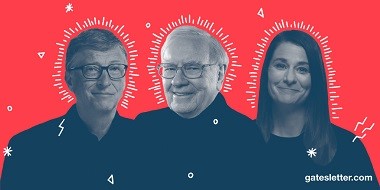
Every year, Bill and Melinda Gates publish an annual letter to broaden awareness and interest in key global health and development programs. This year’s Annual Letter mentioned polio among their foundation’s ongoing efforts to fight disease and inequality, specifically, the incredible progress that’s been made towards polio eradication. Melinda Gates offers these kind words to reaffirm the important role Rotary has had leading the way to a polio-free world:
“We’re awed by the teams of vaccinators who take risks to reach each child. And we’re inspired by the infinite persistence of Rotary International. They were leading this fight long before we joined it, and they’ve just kept moving forward.”
She goes on to say, “They know going from 350,000 cases to 37 is amazing, but success is zero.” Even though a handful of polio cases have been reported this year, there is a chance these are the last cases of polio in history. This June, Bill Gates will speak at the Rotary International Convention in Atlanta, Georgia, USA to discuss how we can — and will — end polio together.
Board Meeting held Wednesday 12th April
Thank you to all who attended the meeting last Wednesday. If I had not mixed up the timings we would have had 8 attendees – so apologies for the mix up but we had a good role up anyway. As discussed at the meeting please read about KIVA and give some consideration to donating a small amount to an account that I have established in the name of Rotary E-Club of D9700, Australia. Contact me by email for details of how to login and make a donation.
We can discuss starting to lend the funds we accumulate at the next Board meeting.
KIVA
Kiva is an international nonprofit, founded in 2005 and based in San Francisco, with a mission to connect people through lending to alleviate poverty. We celebrate and support people looking to create a better future for themselves, their families and their communities.
Website – https://www.kiva.org/
By lending as little as $25 on Kiva, anyone can help a borrower start or grow a business, go to school, access clean energy or realize their potential. For some, it’s a matter of survival, for others it’s the fuel for a life-long ambition.
100% of every dollar you lend on Kiva goes to funding loans. Kiva covers costs primarily through optional donations, as well as through support from grants and sponsors.
Kiva by the numbers:
2.4Million Borrowers in 83 Countries.
1.6M Lenders who have loaned $967.2M Loans funded through Kiva at 97.0% Repayment rate
It’s a loan, not a donation
Kiva believes lending alongside thousands of others is one of the most powerful and sustainable ways to create economic and social good. Lending on Kiva creates a partnership of mutual dignity and makes it easy to touch more lives with the same dollar. Fund a loan, get repaid, fund another.
You choose where to make an impact
Whether you lend to friends in your community, or people halfway around the world (and for many, it’s both), Kiva creates the opportunity to play a special part in someone else’s story. At Kiva, loans aren’t just about money—they’re a way to create connection and relationships.
Pushing the boundaries of a loan
Kiva started as a pioneer in crowdfunding in 2005, and is constantly innovating to meet people’s diverse lending needs. Whether it’s reinventing microfinance with more flexible terms, supporting community-wide projects or lowering costs to borrowers, we are always testing and learning.
Lifting one, to lift many
When a Kiva loan enables someone to grow a business and create opportunity for themselves, it creates opportunities for others as well. That ripple effect can shape the future for a family or an entire community.
Due diligence and monitoring
Kiva takes due diligence and monitoring very seriously as part of our responsibility to lenders and borrowers. We encourage all lenders to learn about the risks of lending on Kiva as Kiva does not guarantee repayment on any loans. Lending on Kiva may involve loss of principal, for a variety of reasons including if the borrower doesn’t repay, the Field Partner doesn’t repay or from currency loss.
The level of due diligence relevant to a specific loan on Kiva depends on a variety of factors, including how the loan is administered. Most loans on Kiva are administered by one of our local partners working in more than 80 countries. Kiva conducts due diligence on all Field Partners prior to allowing them to begin posting loans on the Kiva platform. To learn more about this process visit our Field Partner due diligence page.
Almost all Kiva loans for borrowers in the U.S. are direct loans, which are not administered by a Field Partner. This gives Kiva the ability to reach populations that even microlenders can’t or don’t serve, but it also means these loans often involve a higher level of risk or default. To learn more about the due diligence for these U.S. loans, please visit the due diligence page for direct loans.
The risks of lending
Microloans reach populations that have limited access to financial services, so these types of loans come with some inherent risks for lenders. When you lend money on Kiva, you may lose some or all of your principal. You should be aware of the different types of risk (some of which are outlined below) and find the right loan option for you, with respect to repayment risk and social return.
Kiva’s current repayment rate is reflected below. The “overall repayment rate for all loans” includes all loans in all countries, including loans that were repaid or defaulted and loans that are currently paying back. It also factors in currency loss. Please note that past repayment performance does not guarantee future results. To review the terms that apply to your use of Kiva, please see our terms of use.
In order to help reduce your risk exposure, you may wish to diversify your Kiva portfolio, thus reducing your exposure to any one borrower, Field Partner or country. For example, instead of placing $100 with 1 borrower, you may wish to place $25 with 4 borrowers in different countries.
Repayment rate statistics
- Repayment rate for all loans: 97.0%
- Repayment rate for ended loans only: 98.0%
- Repayment rate for partner facilitated loans: 97.2%
- Repayment rate for direct U.S. loans: 83.3%
- Borrower repayment rate for all loans: 97.5%
- Currency exchange loss rate: 0.5%
8,000 kilometers to peace
Rotary members in a small town of Nova Scotia, Canada, took action to bring two families from war-torn Syria to their country, where the refugees are starting a new life.
Alchehade grabbed the children and ran into the night and the choking smoke and dust. A neighbor helped her carry her three-year-old twin boys, Mounzer and Kaiss; another drove the pickup truck they all clambered into. Over the next several days, as bombs continued to fall, the family – including daughters Kawthar, age six, and Roukia, a baby – took refuge in a nearby forest, sleeping under the trees as Sultanah tried to figure out their next move.
In neighboring Lebanon, Sultanah’s husband, Mazen, frantically tried to contact his wife. For years, Mazen had shuttled back and forth across the border every few weeks to do construction work on high-rise buildings in Beirut. While the jobs provided an income for his family, he says, the separation was hard. But their situation had just gotten much harder.
With the Syrian civil war now engulfing his village, Mazen couldn’t return. And it would be four months before his wife and children could cross into Lebanon.
Eventually, the family was reunited. They were alive. But they were refugees, seeking asylum in any country that would take them, hoping to get far away from the violence that had driven them, along with millions of other Syrians, into foreign lands.
The Alchehade family registered with the United Nations High Commissioner for Refugees (UNHCR), the agency responsible for resettling Syrian refugees, and waited. They were still in Lebanon nearly three years later.
Meanwhile, 8,000 kilometers away, Rotarians in the small town of Amherst, Nova Scotia, were watching images of Syrian refugees on television and looking for ways to help.

In September 2015, members of the Rotary Club of Amherst were thinking about their next international project. Over the years, the group has helped build and equip a school in South Africa, provided educational materials to students in the Bahamas, and raised funds for disaster-stricken areas around the world, but their thoughts turned to Syria as the plight of refugees dominated the news.
“We as Rotarians couldn’t ignore what we were watching each and every day,” says Ron Wilson, a semiretired civil engineer. “Families dying while making their journey to Europe or other places. Families desperately trying to flee war and, sadly, their homes. The heart-wrenching images were the impetus for our club to do something.”
Ann Sharpe had joined Rotary specifically to get involved with projects to help refugees. In May 2014, she had attended the wedding of some friends in Turkey, which has taken in nearly 3 million Syrian refugees since 2011, more than any other country. While in Istanbul, Sharpe saw refugee children on the streets begging for food or money.
Why host a Rotary Peace Fellow?
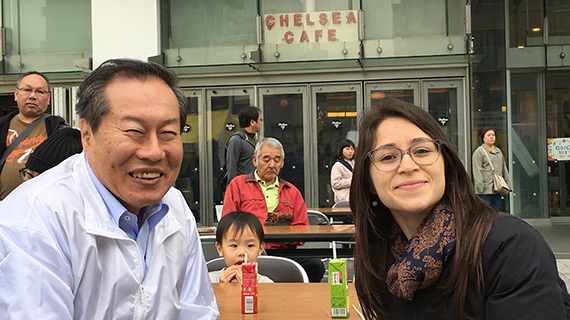
Masao Mizuno meets with a Rotary Peace Fellow.
By Masao Mizuno, Rotary Club of Ageo West, Japan
Hosting a Peace Fellow substantially changed my life in Rotary. Since joining Rotary, I have been running a company that imports industrial tools, mostly from Israel and Europe, so I am familiar with talking to people from other countries.
My initial purpose for joining Rotary was to make local friends and expand my network. However, I began to think about peace more seriously after running a joint venture with an Israeli company. After seven years in my club, I took a position on our club’s Rotary Foundation committee, and heard about the Rotary Peace Fellowship program. Getting involved seemed like the right thing to do.
I met many Peace Fellows in May of 2015 as part of a cross-cultural trip I joined. The students were so similar to the people I work with internationally, so it took only a few seconds to make friends with them. Most of the Peace Fellows are well experienced in both studying and travelling. When I talk to them, I feel relaxed and encouraged. Additionally, I have had many chances to meet with family members and friends of Peace Fellows as a Rotary Foundation committee member during the last two years.
I have been enjoying the time I get to spend with Peace Fellows and I appreciate the opportunity to support these enthusiastic young students.
By volunteering as host counselors, Rotary members share culture and build friendships with Peace Fellows. Learn more about the Rotary Peace Centers.
The Rotary Clubs of NSW Police Officer of the year and Emergency Services Community Awards
Our Club can nominate a police officer or emergency services officer to be considered for these awards. Just email me if you think you know someone who we should nominate.
The NSW Police Officer of the year details are in this link – rotary-2017-flyer-a5-2up
Details of the NSW Emergency Services Community Awards are in the flyer below:
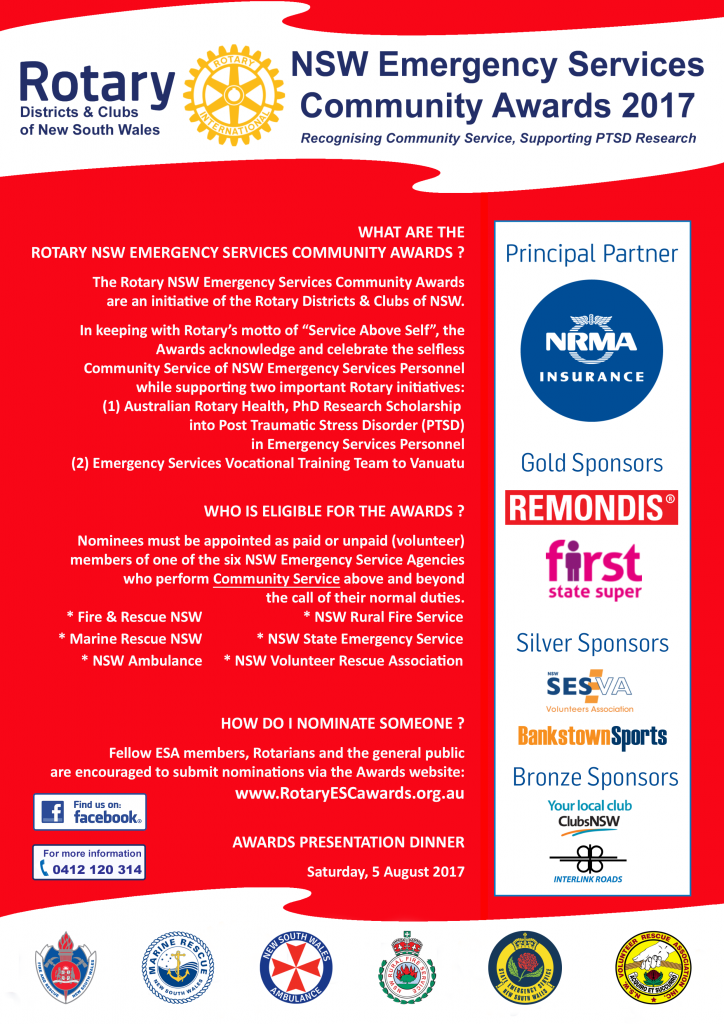
From Rotary Scholar to Peace Corps
Please note the organisation KIVA that may be an avenue for our Club to achieve a positive presence for Rotary and assist individuals that we select to achieve their goals.

By Jasmine Segall, former Rotary global grant scholar
I have heard a variety of interesting stories about why the rural Costa Rican town I live in as a Peace Corps volunteer is called Monterrey. My favorite is the literal translation: “King of the Grass,” explained by a wizened elderly gentleman as the place his family settled to farm cattle because of its nutritious vegetation. On a good day, I can get a clear view of the Arenal Volcano and see the lush farmland that stretches endlessly below. The view is breathtaking. It truly is a green kingdom.
My path to becoming a “loyal subject” of Monterrey was influenced by a lifelong involvement in community service. I grew up participating in the Girl Scouts, 4-H, and Key Club. As an undergraduate at the University of California, Berkeley, I volunteered at Kiva – a nonprofit that makes small loans to empower entrepreneurs around the world.
One of the highlights of my undergraduate experience was starting a student group that partnered with Kiva to offer no-interest microloans to low-income entrepreneurs in Oakland, California, USA. Our first borrower used the profits generated from her microloan to fund her son’s college education. As I am the daughter of a university professor, being able to impact someone’s life this way left a powerful impression. The experience cemented my commitment to a career in local economic development.
A Rotary global grant made possible my dream of obtaining a Master of Science in Local Economic Development at the London School of Economics. Being exposed to such a diversity of international development theories and change-makers made my time in London one of the most inspiring periods of my life. Meeting Rotarians with an incredible dedication to service at both the Berkeley Rotary Club, which sponsored my global grant, and the Sidcup Rotary Club, which hosted me in the UK, reaffirmed my commitment to dedicating my own life to service. It was actually the experience of earning a master’s degree that gave me the confidence to apply to the Peace Corps.

Jasmine Segall, center, at a rally to defend children’s rights.
I have been serving as a Peace Corps Community Economic Development volunteer for almost a year now, and my primary focus is promoting women’s empowerment and entrepreneurship. Examples of some projects I work on include helping a small women’s group plan a sewing business and partnering with Grameen Bank to offer business coaching to female microloan borrowers.
One of my best friends and co-workers here in Costa Rica is a mother of four who works as a professional clown and volunteers for the national social service organization to entertain some of the poorest children in Costa Rica. Her life story is incredible. For someone who struggles to feed her children as a single mother, her passion for helping other children both humbles and inspires me.
Rotary has left a profound impression on me, as will my time as a Peace Corps volunteer. I can only hope that the next step will be similarly rewarding.
Read the Rotary-Peace Corps partnership fact sheet for collaboration opportunities for clubs and districts. If you’re attending the 2017 Rotary Convention in Atlanta, visit the Peace Corps booth in the House of Friendship and attend a Rotary-Peace Corps breakout session to learn more about the partnership. Email rotary.service@rotary.org if you have any questions.
Rotarian Returned Peace Corps Volunteers are invited to District 5450’s Rotary-Peace Corps workshop on 4 August 2017 in Denver, Colorado, USA. Contact Charlie Hunt or Steve Werner for more information and to register for the workshop.
Hi All – some good ideas here?
Meet my vibrant club

Members of the Seoul Young Leaders Satellite Club in Seoul, Korea.
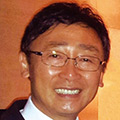
S. David Chang
By S. David Chang, Rotary Club of Seoul, Korea
Our club, The Rotary Club of Seoul, was established in 1927 as the first club in Korea. We are unique in that our members are multinational and our official language is English. Like most other clubs, our challenges were: diminishing membership; inability to attract younger people; lack of community service; and uninteresting meetings sinking motivation and enthusiasm.
In recent years, our club board decided to transform our club with several new initiatives. We decided to form a satellite club for English speaking young leaders in Seoul between age 19-35. The group got started with Ray Chetti as its first leader, and we were successful in recruiting 65 young leaders. During the first year, this “Seoul Young Leaders Satellite Club” conducted 38 fundraising and community service events, raising over $7,000. Now with new co-presidents (Sayel Cortes & Haein An), the club is focusing on helping single mothers without support.
Another exciting thing we did was to create a “convertible membership program” for busy people of age 36-55 to pay only half of our annual fee and come only a couple of times per month.
We also decided to lower the barriers for new members. We got rid of the clerk and lowered the annual dues and made our meetings more interesting. Now, every month, we have one formal lunch meeting, one community service event, one informal fellowship night, and one cultural or outside activity to engage new friends.
By cutting down operational expenses enough to give a $100 contribution to The Rotary Foundation for every member, we became the only 100% Foundation Giving Club within our district. During the first year of our transformation, we increased our membership from 38 to 125 including 65 young leaders. We wiped out almost all district awards and restored our club image and reputation. It is important to create a challenging vision with stretching goals, but it is more important to sustain that momentum for several years. We are lucky to have club leaders like Andrew Lee, Marc DeVastale, Sugar Han, and many others who really care for Rotary and our club.
Rotary is all about service and friendship; and we must continue to be creative to make it enjoyable and meaningful.
Learn more about the new club flexibility measures
Next GoToMeeTing Change of Date
Please note that I have had to change the next GoToMeeting date to Wednesday 12th April as I will be out of internet contact the week before. I hope that this does not inconvenience too many members.
When more women work, economies grow
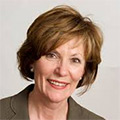 By Annemarie Mostert, a member of the E-club of Southern Africa
By Annemarie Mostert, a member of the E-club of Southern Africa
On International Women’s Day, 8 March, it is important to reflect on the milestones women have achieved in economic opportunity, and the role Rotary clubs can play.
The World Economic Forum’s latest Global Gender Gap report identified the continued burden of economic inequality and gaps in economic opportunity for women across the world. This data isn’t just about representation and greater opportunity. It is important for global economic growth.
Put simply, “When more women work, economies grow.” And you may be startled by how much. A recent McKinsey report estimates that if women play an “identical role in labor markets to that of men,” this could potentially add “$28 trillion, or 26 percent” to the global GDP.
As a member of Rotary, the global nonprofit at the intersection of commerce and cause, I believe that I have to make an impact at a local level. Rotary’s model is unique because although many organisations allow you to network professionally or get involved in community projects, few allow you to combine both of these opportunities.
Twelve years ago, I started a nonprofit called Sešego Cares in South Africa, based on a model that combines socially responsible business with sustainable projects to empower vulnerable people through skills and enterprise development. We’ve educated and enabled women to start their own bakeries, gardens, sewing projects, libraries, and other small enterprises to boost their sense of self-worth, lift themselves out of poverty, learn transferable skills, and transform their communities. As our model channels the power of private sector volunteerism through mentorship and job creation, we’ve also managed to eliminate administrative costs.
One project of which I’m particularly proud is the Zandspruit Bakery in Johannesburg, which opened its doors in 2012. This is a self-sustaining micro-enterprise powered in the beginning only by a solar oven, which can cook great quantities of food to feed many, with no fuel costs. With private sector sponsorship, and help from a local Rotary club, the facility trains entrepreneurs seeking to enter the formal economy.
Eight community members participated in a Business Management training course, and now run the bakery at a profit, as the goods, including bread, scones, biscuits and doughnuts, are sold to the local community at a cost lower than other suppliers. Profits are reinvested in the community, and the solar oven is a more affordable alternative to electricity.
In South Africa, we are in the top ten (no.6) of countries where women work more minutes per day than men. This reflects global data which shows that ‘women still spend more of their time on unpaid work such as housework, childcare and care for older people.’ This means less time for women to pursue economic opportunities, fewer women in senior management positions, and limited participation in shaping social and economic policies.
All this compounds existing inequalities as women have a lack of access to important assets like financial loans, or a lack of secure access to land rights. Gender based violence is also a serious issue in the country, with ‘intimate partner violence’ accounting for up to 70% of female murder victims by some estimates.
Progress has been made in legislation for women’s equality, education and political participation, but to convert legislation into action requires local engagement with socially conscious local partnerships involving civil society, the private sector and the government.
Bold action is required to challenge the recent prediction that the gender gap won’t close entirely until 2186, which is too long to wait. As Rotarian, we have a responsibility to use our unique position to make a difference.
